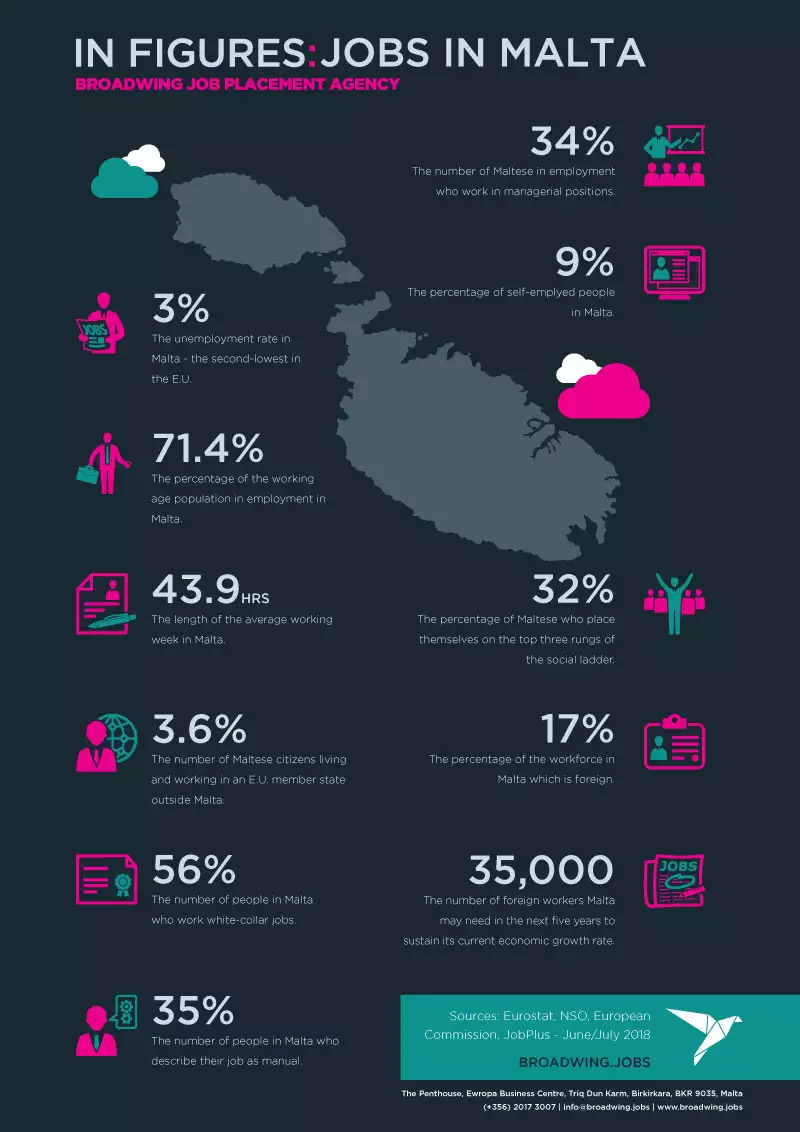Malta’s Employment Market: Not managing to find the right skills-set?
More and more local businesses are finding it challenging and difficult to employ people and to fill in vacant positions across different sectors. The Malta Chamber of Commerce is coming across many instances where lack of human resources is stalling growth of local companies that are otherwise thriving and doing well. Clearly the skills gap is the result of a growing booming economy – here Commercial Courier speaks to business leaders and recruiters on what can be done to bridge the gap and how can local companies become more creative in attracting the right resources they desperately need.
What are the main employment issues being faced in Malta’s current market?
With a steadily growing economy and an increase in local and foreign start-ups and companies setting-up shop in Malta, we’re undoubtedly facing an Employee’s Market. This is making it increasingly hard for companies to keep up with demand and growth due to a lack of suitable candidates, however this is not the only problem. As opposed to 10 years ago, the staff turnover rate has increased significantly with employee’s being more interested in career progression, job satisfaction, and a work environment they are comfortable with rather than job security. Having spoken to a number of schools and training institutions in Malta, this is likely to continue primarily in the accounts, finance and IT sectors as a large number of youth are still focussed on Sciences or the Legal profession.
What advice can you give companies struggling to maintain a solid workforce?
While exhibiting at Malta’s first B2B Expo & Conference we got the opportunity to speak to business owners from a range of industries and it is becoming ever-more apparent that one of the most important factor in today’s market is Employee Retention. Companies need to hold on to their staff to avoid losing their talent and a higher salary is not necessarily the answer. There are a number of ways that companies can tackle this including setting clear opportunities for further career growth, offering ongoing training, both internally and externally, and other benefits such as: study leave, fuel allowance, company meals, free mobile packages, health and life insurance, and bonuses on reaching KPI’s to name a few. Most importantly, we encourage companies to establish open communication channels between the management and staff, along with nurturing a friendly and fun work environment. A perfect example of this is the iGaming industry and the importance it gives to HR which has attracted professionals from all other industries.
How can Broadwing help companies struggling to hire the right talent?
Since the company’s inception in January of this year, our aim has been to formulate unique and powerful solutions that will help companies build their team in an ever-changing landscape. We have achieved this through an international network of recruitment partners which includes the UK, Denmark, Poland, South Africa and India to date. We have given great importance to showcasing Malta to attract multicultural and multidisciplinary talents from around the world to relocate to Malta and seek employment.
Looking to hire new talent?
Complete our employer registration and advertise your jobs with us.
3% – The unemployment rate in Malta – the second-lowest in the EU.
3.6% – The number of Maltese citizens living and working in an EU member state outside Malta.
9% – The percentage of self-employed in Malta.
17% – The percentage of the workforce in Malta which is foreign.
32% – The percentage of Maltese who place themselves on the top three rungs of the social ladder.
34% – The number of Maltese employment who work in managerial positions.
35% – The number of people in Malta who describe their job as manual.
56% – The number of people in Malta who work white-collar jobs.
71.4% – The percentage of the working age population in employment in Malta.
43.9 HRS – The length of the average working week in Malta.
35,000 – The number of foreign workers Malta may need in the next five years to sustain its current economic growth rate.
(Sources: Eurostat, NSO, European Commission, JobsPlus)
